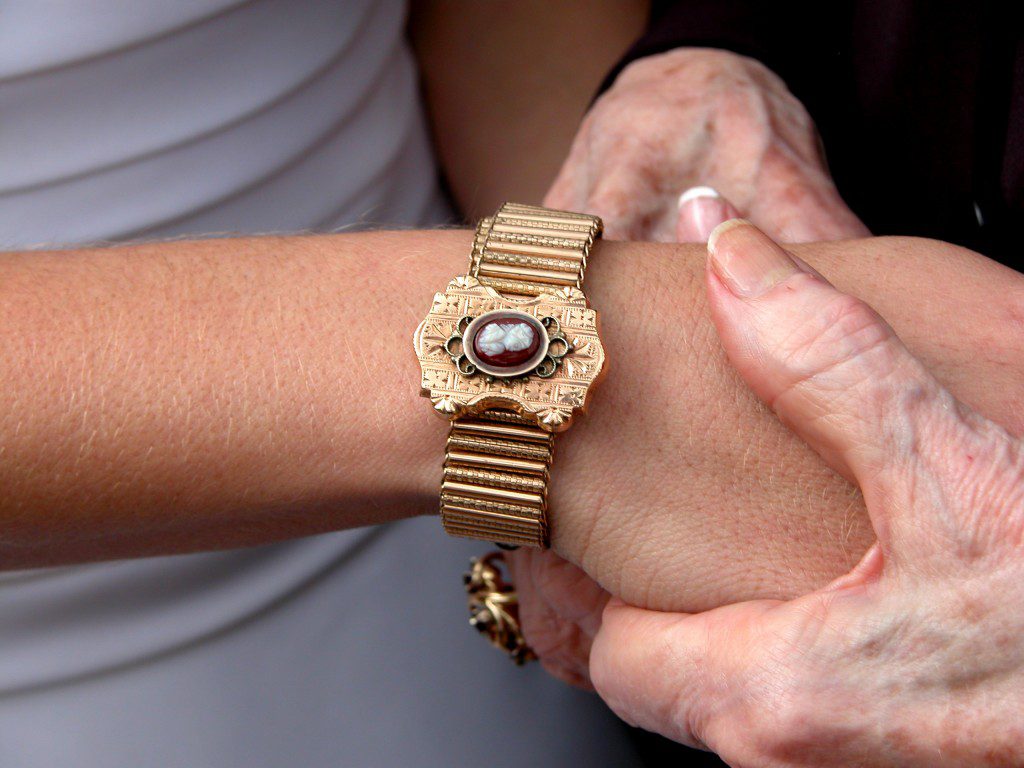A couple of Sundays ago, I had a phone date with my 90-year-old grandmother, Deenie (aka “Cotton“). The boys were outside in swimsuits with Chris and a water hose and I had an hour-long window and a phone. After a week of family stomach-bug yuck, I called Deenie, cleaner and sponge in hand, ready to scrub every surface of the house while we talked. Instead, I ended up at my kitchen table, pen in hand, scribbling her words onto scraps of paper.
Nine years ago, I bought both of my grandmothers their own leather journal for Christmas. I told them, This is really a gift for me. I want to know everything you’ve ever thought of telling me. Write down your memories of childhood, I said. Write down what your parents were like and how you got along with your brothers and sisters. Write about the farm [both my grandmothers grew up on cotton farms] and your friends. Write about meeting your husband, write about World War II, about being a mom and how it felt to live through the sixties. Write anything!
Of course, I always assume that people are like me, obsessed with themselves and certain that every one will want to read every detail of their lives. I didn’t take personality into account. My dad’s mother, Meemaw, is an extrovert. She’s got opinions! She loves to be in charge. She still displays the trophy she won on the 12th grade girls basketball team in Hollis, Oklahoma. That was when she led her team to the Oklahoma State Championship in 1942. (That championship, by the way, was won while she was married—as a 17 year old—to my grandfather who was off in Europe during the war. Amazing, I know.) Meemaw took that journal and got to work. She wrote and wrote and wrote.
Deenie, however, never felt comfortable with her assignment. “Oh, Micha,” she’d say, her accent holding long that “y” sound, “I just don’t have anything interesting to tell.” She’s an introvert. She’s shy. And though she’s always been a voracious reader (when she was a kid she once kept her nose in a novel despite a tornado blowing over her home), she’s never felt comfortable writing. I begged her every way possible and finally decided not to push anymore.
But that Sunday afternoon was a phone date with a purpose attached: I wanted to know about my great-grandmother’s spiritual life. I’ve been working on a small little side project, an essay about being female in the Church, and I’ve been thinking of how the Church speaks to mothering—expectations, support, and spiritual discipleship of mothers. I’ve been asking myself: How male-dominated is our understanding of the spiritual life?
When I was a little girl, I was in love with Deenie’s mother, Mama Mac. (In case you’re wondering, Mama Monk draws some inspiration from her name.) She was in her nineties all my childhood. She died when she was 97 and I was 8. Before then, I spent almost every Saturday morning in her home. I was probably one of 30 great-grandchildren, but I was the one who lived nearby; I was the one who came to visit. So she kept cookies for me, and a few toys. And, when I was little I sat in her lap, even though she was Very Old Looking with long ears and some chin hairs and a quivery voice. Somehow, I knew she needed me. And I knew that knowing her was special. We loved each other.
She was the first great loss in my life and I think of her often. And as I’ve been writing this essay, I keep picturing Mama Mac, circa 1920s, alone all day in that farmhouse in West Texas, seven kids in her care and a third grade education. What was the Church saying to her about her worth as a mother?
I asked Deenie if Mama Mac prayed aloud. I asked if Mama Mac sang hymns around the house. I asked if she had friends. I asked if she ever spoke about God throughout the day. And my grandmother and I had the most wonderful conversation about her own life: how many cows they had to milk on a daily basis, Mama Mac’s timidity, Mama Mac’s reading level, her isolation on that farm with only her stern mother-in-law as a neighbor.
And I learned something about Deenie I never knew: How, after growing up in a faith tradition that taught her to daily fear God’s wrath—the possibility that every unconfessed sin might undo the power of the cross—she was brave enough to chose to be baptized as a 33-year-old when she discovered the power of grace, forgiveness that depended not on her confessional-aerobics, but on God’s unchanging love. She was immersed in the water, released from that deep fear, her two little girls watching and learning courage from the pews of their church.
We talked for a long time about mothering and I recalled what years of youth ministry has taught me: Every woman is a 16-year-old girl inside, who wants to be told that she has value, that she is loved. And I felt it even then, at my kitchen table at 5 pm, the sun streaming through the window, the heat of the early summer afternoon. When I said how much I loved Mama Mac, when I said how she never could have known what she meant to me, Deenie reminded me that Mama Mac had loved me too, even when she could no longer remember my name from her bed in the nursing home.
I reminded Deenie that it will be the same for my nieces, who are even now learning from her how to age with grace and kindness and quiet contentment. Loving a great-grandmother, I said, always shapes us, whether we know it or not.
And so, I cried a little on the phone, heard stories that may not have been told in decades, and then we did what mothers have always done best: We reminded each other about the Love.











